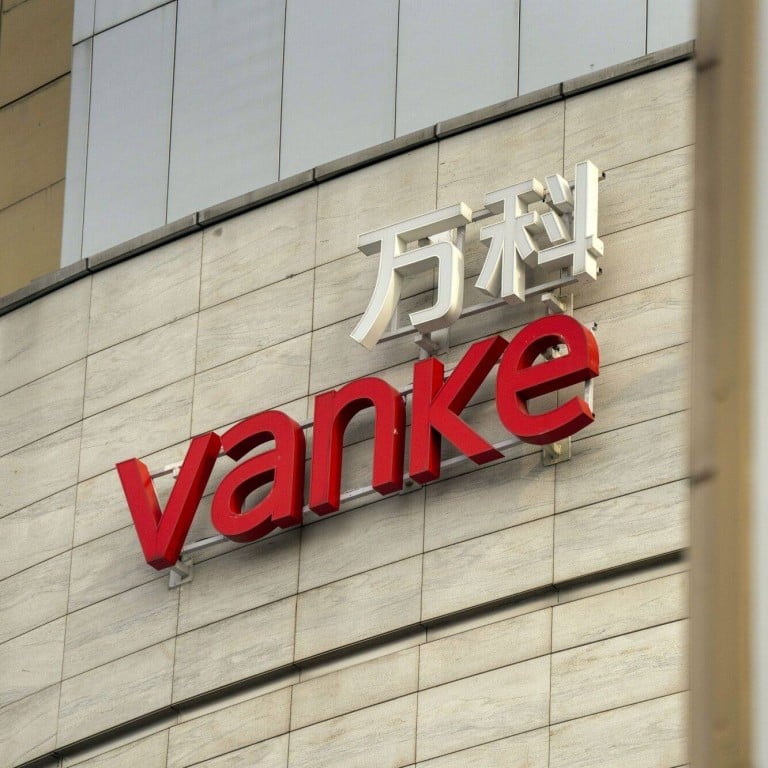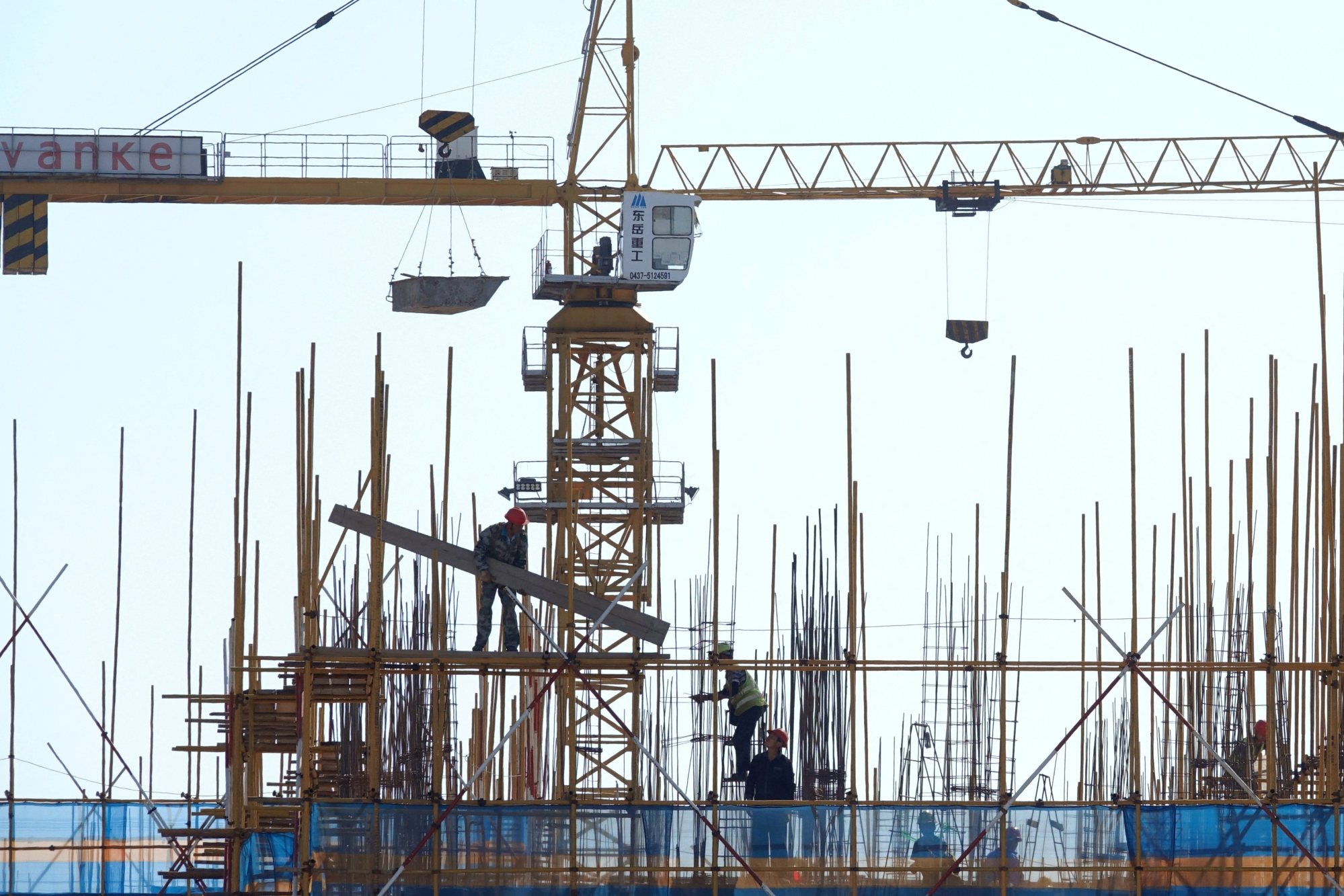
Developer China Vanke claims Moody’s junk-level downgrade is manageable as shares and bonds gain on bailout reports
- The impact of Monday’s downgrade is ‘controllable’, the second-largest Chinese developer says
- Vanke shares rose more than 10 per cent to HK$6.30 on Tuesday on belief that commercial banks will raise up to US$11.1 billion to repay its debts
Indebted developer China Vanke said it remains financially sound and can manage the impact of Monday’s credit-rating downgrade to junk-level status. The company’s shares and bonds both gained ground following weeks of losses amid reports of a state-backed bailout.
The impact of the downgrade is “controllable”, Vanke, the second largest Chinese developer by sales, said in a written response to the Post. It added that “the company’s operation is normal” while its funding channels are stable and its refinancing progress is running “soundly”.

Vanke shares rose more than 10 per cent to HK$6.30 on Tuesday. The Hang Seng Mainland Properties Index, a gauge tracking 10 mainland home builders listed in Hong Kong, advanced 7.9 per cent.
Bid prices for Vanke’s US bonds due in 2029 rose to 44.496 cents on the dollar on Tuesday from 42.177 cents the previous day, while bid prices for its 2025 bonds climbed to 71.711 cents from 67.631 cents, according to data from Bondsupermarket.
Moody’s is the first among the big three international rating agencies to cut the company’s debt to junk status; ratings from S&P and Fitch Ratings remain in the lower reaches of the investible level.
Chinese regulators ask large banks to step up support for Vanke, sources say
The Shenzhen-based developer has around 5.45 billion yuan in onshore notes due this year, plus more than US$2.3 billion in US bonds that mature in the next five years, according to data compiled by CGS International Securities Hong Kong.
As a state-backed developer, Vanke has been viewed as financially sound. It avoided the first wave of defaults among Chinese developers starting in 2021 when Beijing’s “three red lines” policy sparked a liquidity crisis by restricting borrowing in the highly leveraged sector.
Vanke has been selling assets in recent months and said on Friday in a Shenzhen Stock Exchange filing that it had paid offshore debt that was due on Monday.
“The risk for Vanke is still manageable,” said Raymond Cheng, managing director and head of China and Hong Kong property at CGS International, citing Vanke’s recent asset disposals and assets it still holds that are worth an estimated 100 billion yuan.
China Vanke debt cut to ‘junk’ by Moody’s as funding concerns mount
“The report on Vanke was not new,” said Zerlina Zeng, senior analyst at CreditSights. “Since the third quarter of 2023, banks have been asked by top authorities not to reduce credit extensions to Vanke. The company’s liquidity did marginally improve as a result, and it managed to repay a few offshore and onshore debt maturities.”
Compared to non-defaulted, privately run developers, Vanke’s liquidity condition and government support are relatively strong and the near-term default risk is lower, she said.
Yet for Vanke, like the entire property market, much depends on the confidence of Chinese homebuyers.
“Looking beyond the next six to 12 months, Vanke’s debt servicing capacity is still highly contingent on the recovery of contracted sales,” Zeng said.

